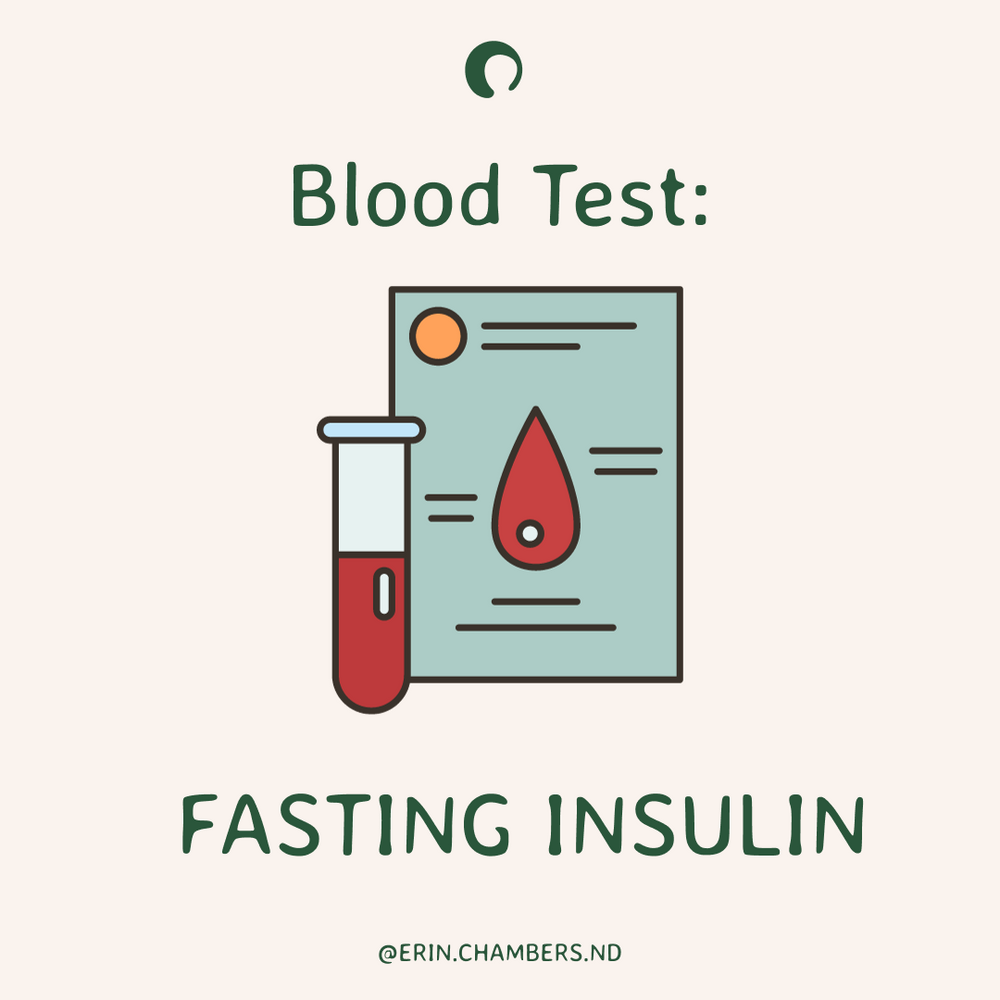Fasting Insulin: The Test That Never Gets Ordered


Insulin is a key hormone released by the pancreas that plays a leading role in our metabolism by allowing us to process the sugars in our blood after eating. Our insulin levels are an important measure of our overall metabolic health, but they’re rarely tested in a regular checkup.
A fasting insulin test can help figure out, early on, if you could be at risk for a number of different health issues such as high blood pressure, high cholesterol, cardiovascular disease, metabolic syndrome, fatty liver disease, or type 2 diabetes.
Book a consultation to find out if you might benefit from a fasting insulin test.
Insulin resistance
The pancreas makes insulin as a signal to receptors on the surface of our blood cells to take in sugar, allowing the body to make energy.
Insulin resistance happens when our cells become the equivalent of ‘hard of hearing to insulin’, ignoring the signal to take in sugar. This causes the pancreas to do the equivalent of yelling louder, producing even more insulin to get the sugar out of the blood and into the cells. This is how the body compensates, which is great, until it stops working.
Over time, usually many years, the cells can start to go deaf to the insulin signal, and sugars start getting left in the blood. Eventually, blood sugars start to rise, indicating a degree of insulin resistance and blood sugar dysregulation, known as dysglycemia. This is when your blood sugar fluctuates above or below the normal range, which, like insulin resistance, is a sign that you might be en route to diabetes or another metabolic disorder.
The good news is that a fasting insulin test can pick up on early warning signs of insulin resistance, before your blood sugar levels are elevated and while there’s still lots of time to correct the issue before it develops into a chronic illness.
Causes and symptoms of insulin resistance to watch out for
While insulin resistance is often associated with diet and lifestyle conditions such as a diet high in refined carbohydrates and low physical activity, there is also a strong genetic component that can indicate a susceptibility to developing insulin resistance.
Symptoms of insulin resistance might seem minor at first, so they can go unnoticed, or we might just ignore them until they become debilitating. By identifying symptoms early, you can get tested and take steps to improve your insulin sensitivity, reducing the risk of developing more serious health problems down the road.
When the body has too much insulin hanging out in the bloodstream, it can cause symptoms such as:
- Weight gain
- Increased thirst
- Increased urination
- Getting up in the night to pee
- Sugar cravings
- Difficulty concentrating
- Fatigue
- Anxiety, depression, and mood swings
- Lack of focus
- Lack of motivation
- Menstrual irregularities
If you notice any signs of insulin resistance, consider booking an appointment with Dr. Erin to learn more about your metabolic health.
Testing Insulin Resistance and Blood Sugar Dysregulation – So Many Options!
There are several options for testing insulin and blood sugar dysregulation. Here are the most common tests we run to get a picture of your metabolic health:
Insulin: Your ‘fasting’ insulin is the amount of insulin in your bloodstream after an overnight fast of 8-10 hours. The “normal” reference range is 20-180 μU/mL but I like to see it under 100, and ideally around 50.
Fasting blood glucose: This measures your blood sugar after an overnight fast of 8-12 hours. This makes sure there is no sugar from food influencing the reading. A fasting blood sugar of greater than 7 μU/mL can be indicative of diabetes.
Random blood glucose: This is a blood sugar reading that can be taken at any time fasted of day and is checking for overt diabetes. A non-fasting blood sugar level of 11.1 μU/mL or higher can indicate diabetes.
Hemoglobin A1c: This test measures your blood sugar levels over the previous 3 months by assessing how much glucose is attached to your red blood cells. Because the lifespan of a red blood cell is approximately 3 months, this test is a great way to measure how your body has been processing sugar over time. A level greater than 6.5% is indicative of diabetes, and near 5.7% is considered normal.
Oral glucose tolerance test: This is a controlled test where you ingest 75 grams of glucose, then have your blood sugars tested 1 hour later. As with the random blood sugar test, a reading greater than 11.1 μU/mL is indicative of diabetes. This test is routinely ordered in the second trimester of pregnancy to look for gestational diabetes.
An ounce of prevention…
A lot of conditions aren’t black and white, as in you have them or you don’t, but are more of a progression. Some tests can really help tease out where we are along that progression, and fasting insulin is one of them.
One main benefit of having a fasting insulin test is that it can help identify insulin resistance early on, giving us the opportunity to prevent progression to diabetes, which is miles better than treating the disease once it arrives.
Insulin resistance can also be a risk factor for developing health conditions such as cardiovascular disease and metabolic disease, so the sooner you know, the better.
By identifying these underlying issues early on, you can start making changes to improve your overall health and well-being before they get too extreme.
To find out if this test is right for you and if so, how often you should have it done, book an appointment.


